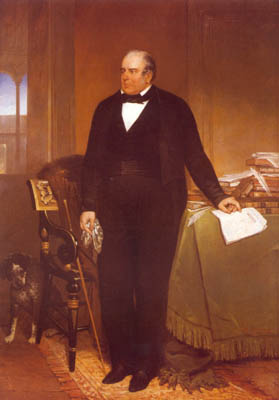This article needs additional citations for verification .(February 2024) |
| |||||
| Decades: | |||||
|---|---|---|---|---|---|
| See also: | Other events in 1810 · Timeline of Chilean history | ||||
The following lists events that happened during 1810 in Chile .
This article needs additional citations for verification .(February 2024) |
| |||||
| Decades: | |||||
|---|---|---|---|---|---|
| See also: | Other events in 1810 · Timeline of Chilean history | ||||
The following lists events that happened during 1810 in Chile .
Royal Governor of Chile: Francisco Antonio García Carrasco(-July 16), Mateo de Toro Zambrano (July 16-September 18)
18 December - Nicolasa Valdés (b. 1733)

Juan Martínez de Rozas Correa was a Chilean lawyer and politician, he was also the first leader in the Chilean fight for independence.

The royal governor of Chile ruled over the Spanish colonial administrative district called the Captaincy General of Chile, and as a result the royal governor also held the title of a captain general. There were 66 such governors or captains during the Spanish conquest and the later periods of Spanish-centered colonialism. Since the first Spanish–Mapuche parliaments in the 17th century it became an almost mandatory tradition for each governor to arrange a parliament with the Mapuches.

The Chilean War of Independence was a military and political event that allowed the emancipation of Chile from the Spanish Monarchy, ending the colonial period and initiating the formation of an independent republic.

Francisco Antonio García Carrasco Díaz was a Spanish soldier and Royal Governor of Chile. His political relations with Juan Martinez de Rozas and a smuggling scandal involving the frigate Scorpion destroyed what little authority he had, and required that he surrender his post to Mateo de Toro Zambrano President of the first government board. He was the last governor to rule before the Chilean independence movement swept the country.

Mateo de Toro Zambrano y Ureta, 1st Count of La Conquista, was a prominent Spanish military and political figure of Criollo descent. He held the position of a knight in the Order of Santiago and was the lord of the Toro-Zambrano estate.

The First Government Junta of Chile, officially the Provisional Government Junta of the Kingdom in the name of Ferdinand VII, was the organization established to rule post-colonial Chile following the deposition and imprisonment of King Ferdinand VII of Spain by Napoleon Bonaparte. It was the earliest step in the Chilean struggle for independence, and the anniversary of its establishment is celebrated as the national day of Chile.

Bishop José Antonio Martínez de Aldunate y Garcés de Marcilla was a Chilean Bishop and member of the First Government Junta of Chile.

José Miguel Infante y Rojas was a Chilean statesman and political figure. He served several times as deputy and minister, and was the force behind the Federalist movement in that country.

Matías Cousiño Jorquera (1810–1863) was a Chilean coal magnate and patriarch of the wealthy Cousiño family. Cousiño's most emblematic coal mine was found in Lota a small coastal town on the coast of the Bío-Bío Region, where steam ships that crossed the Strait of Magellan could be resupplied with coal.
Events in the year 1968 in Mexico.
Carrasco is a Spanish, Portuguese and Galician surname. It derives from a Spanish word meaning ‘holm oak’. Notable people with the surname include:
The following lists events that happened during 1808 in Chile.
The following lists events that happened during 1809 in Chile.
The following lists events that happened during 1817 in Chile.
The following lists events that have happened in 1926 in Mexico.

Ministry of the Navy was a government department of Spain that was tasked with oversight of the Spanish Navy and existed in multiple reincarnations before being finally dissolved in 1977, when its functions were merged with the Ministry of Defense by Adolfo Suárez.
The Second Battle of Iquique was a naval battle of the War of the Pacific that occurred on July 10, 1879. During the battle, the Huáscar faced the 2nd Chilean Naval Squadron which was blockading the port which lead to both forces to face each other.
Juan Rodríguez Ballesteros was a Spanish judge and colonial official in South America. For a few weeks in 1808 he reigned as interim Governor of Chile.

Bernardo de Vera y Pintado, was an Argentine-Chilean lawyer and politician. He was the author of the lyrics of both the Hymn to the Victory of Yerbas Buenas (1813) and the first National Anthem of Chile (1819).